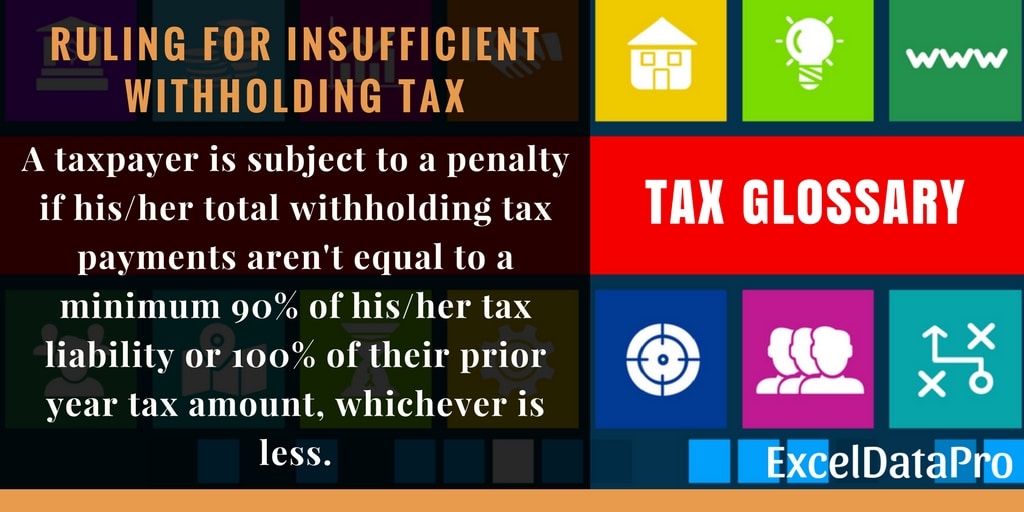
Definition – Withholding Tax
Withholding Tax is the amount of income taxes taken out of your paycheck by your employer. These withheld taxes are paid directly to the government by your employer.
These funds are applied to your Social Security, Medicare, and federal income taxes for the year. Withholding taxes is a way to collect tax at the source of income instead collecting income tax later.
It is just like a saving’s account where your these withheld taxes are kept. At the end of the year, when you calculate your income tax, the amount of your withholding is applied to the amount that is due.
If the withholding tax amount is higher, you are entitled to a tax refund. But if it is not enough you owe the differential taxes.
Furthermore, the withholding tax is also levied on interest and dividends income from securities owned by a nonresident and to other income paid to nonresidents of a country.
The amount of tax that you withhold in each category is reported on your Form W-2 by your employer. An employee receives the W-2 Form from his employer.
How is Withholding Tax determined?
The withheld tax from your wages or salaries depends on 2 things:
- How much you earn?
- The information that is given by you to your employer vide Form W-4.
Factors that affect Withholding Tax
Depending on the information provided in Form W-4, an employer will calculate and withholds the tax.
The below factors affect the amount of withholding tax:
- Change in the status of an employee from single to marital will affect the withholding amount.
- Increase in an additional dependent, additional job or new job etc also affects the withholding tax amount.

In the event of such changes in the life of an employee, he/she must fill the new Form W-4.
Insufficient Withholding Tax
When a taxpayer has insufficient withholding tax from his paycheck during the tax, he has to make Estimated Tax payments or has to pay penalties and interests due to underpayment.
According to the IRS, a taxpayer is subject to a penalty if his/her total withholding tax payments aren’t equal to a minimum 90% of his/her tax liability or 100% of their prior year tax amount. Out of these two whichever is less will be considered.

Read the IRS Publication 505 for more information on Withholding Taxes.
You can download excel templates like Simple Tax Estimator, Itemized Deductions Calculator Traditional IRA Calculator, Roth IRA Calculator, and Income Statement Projection for easy calculations.
We thank our readers for liking, sharing and following us on different social media platforms.
If you have any queries please share in the comment section below. I will be more than happy to assist you.
Leave a Reply